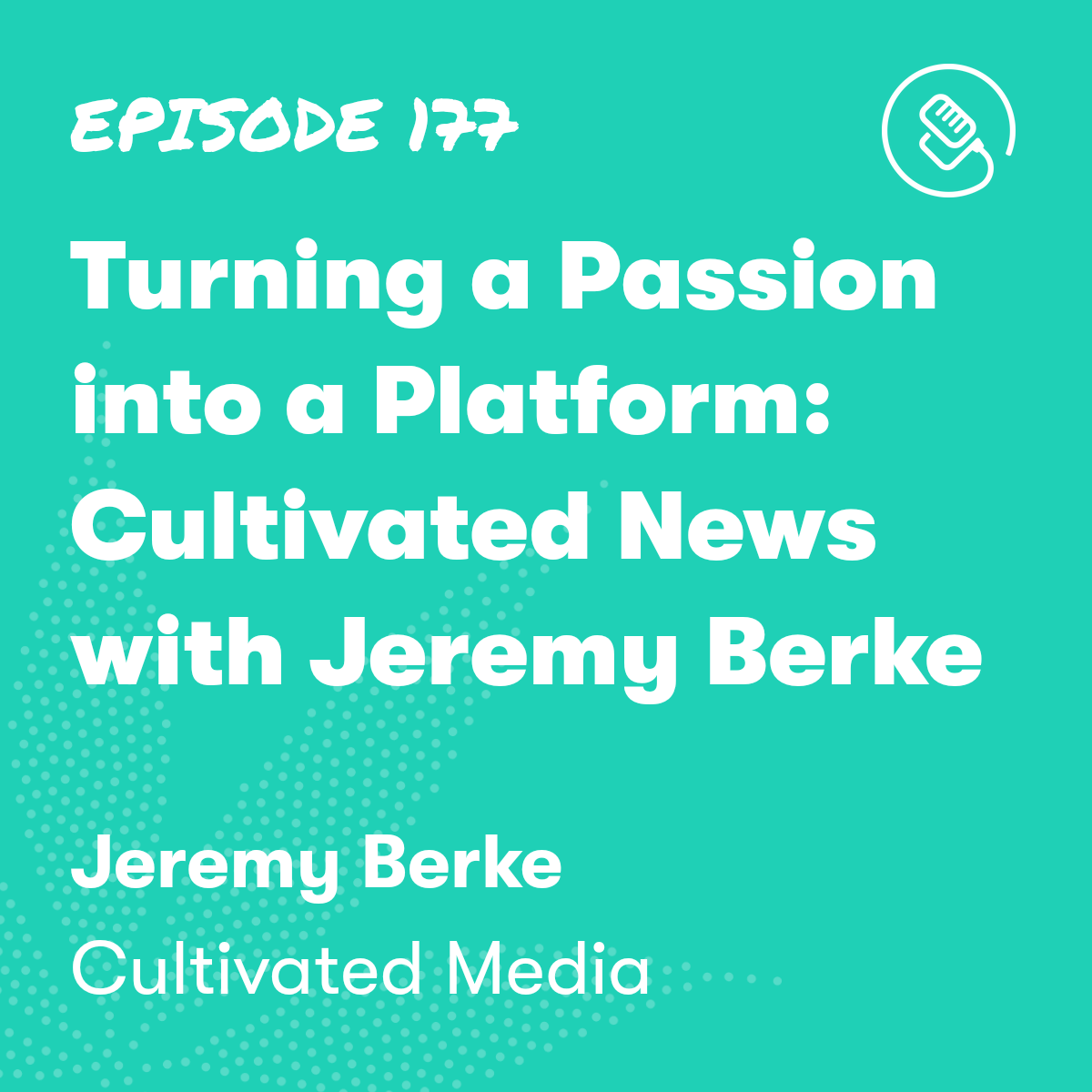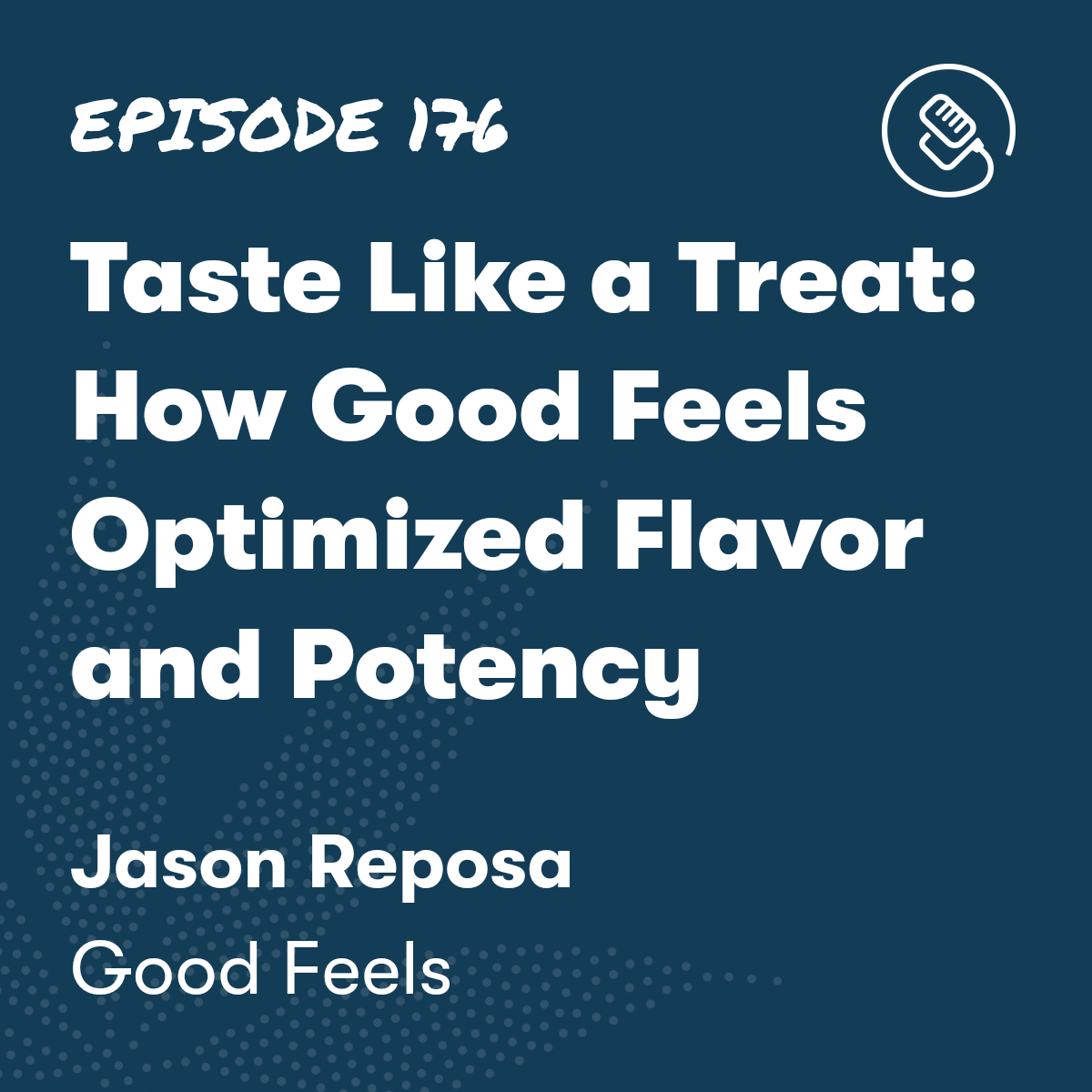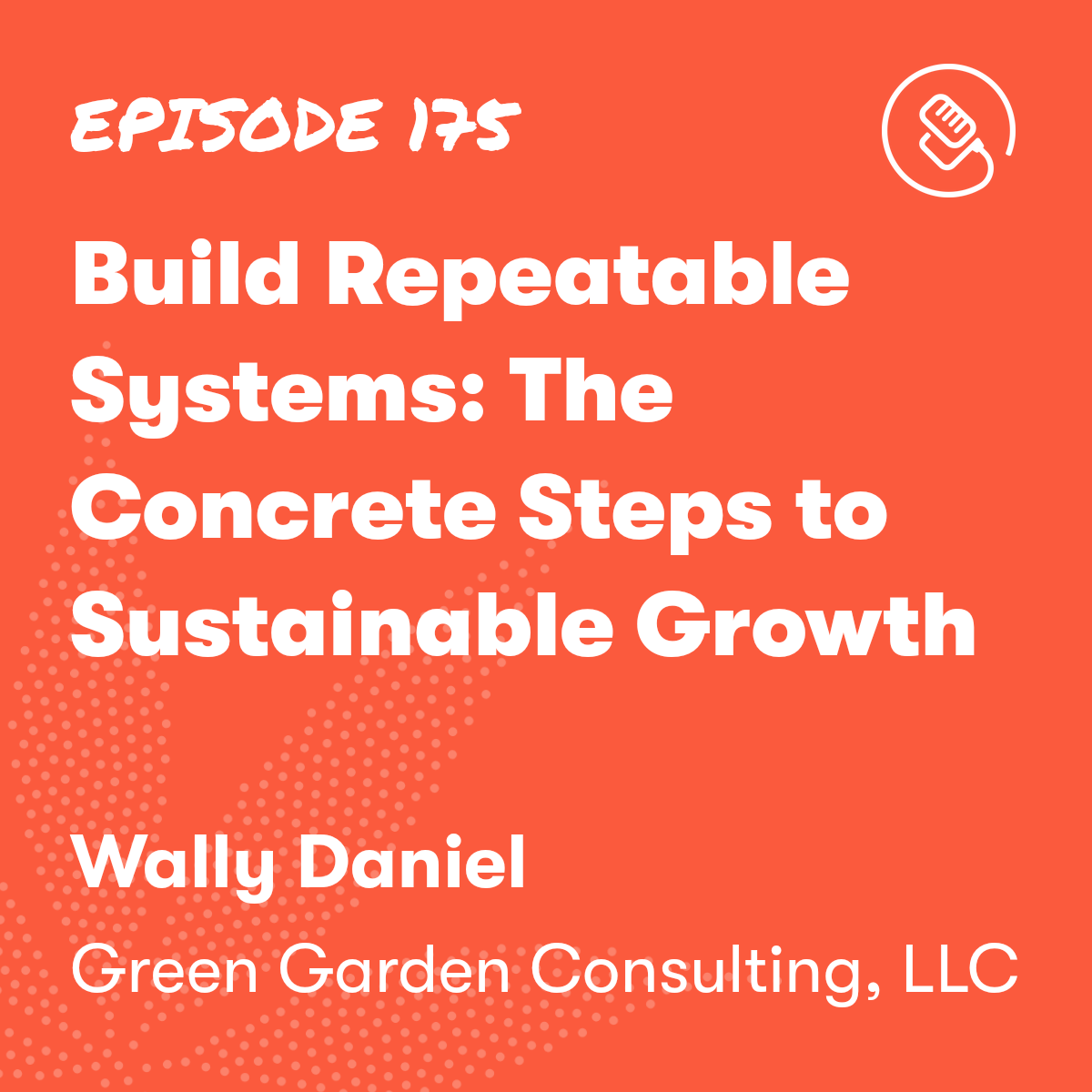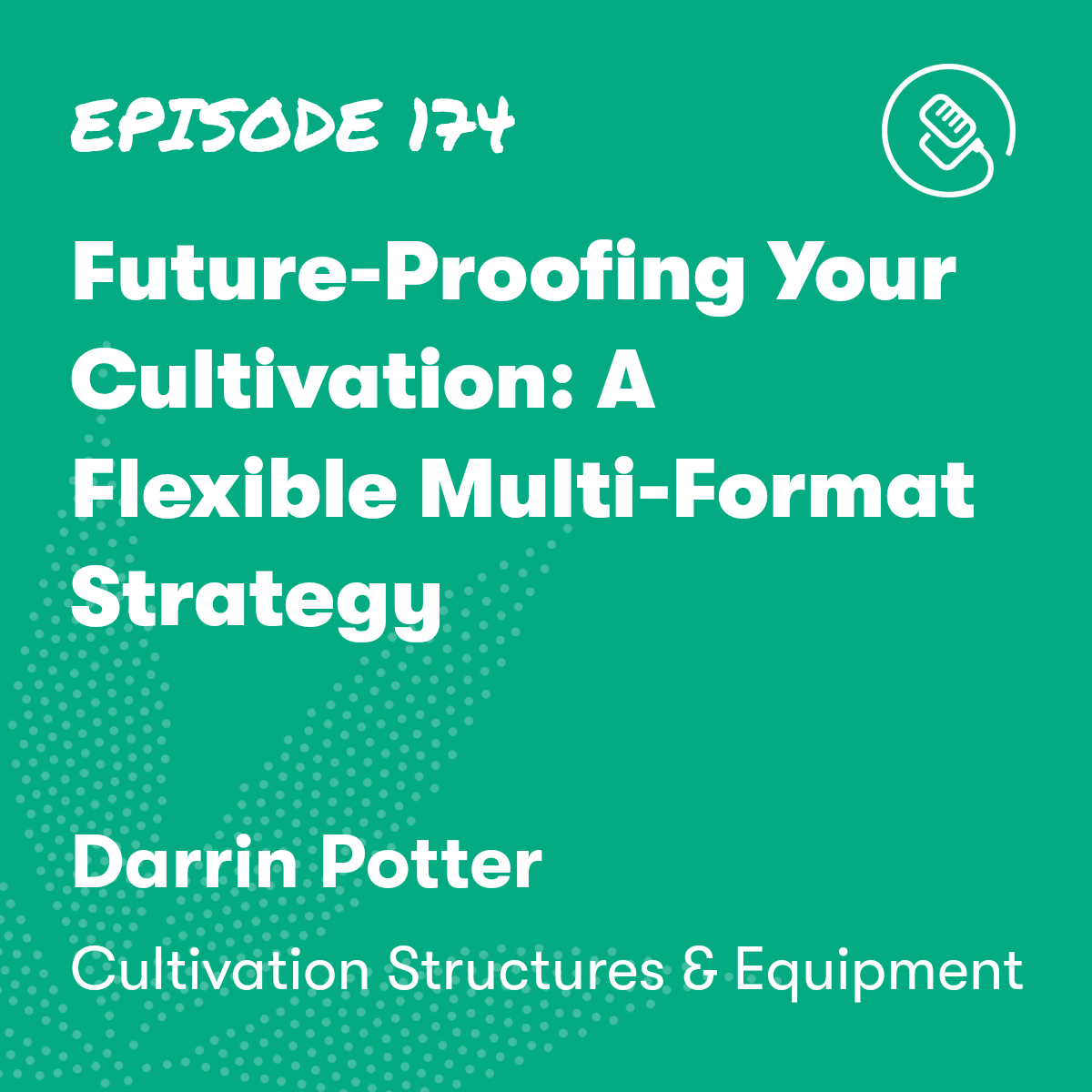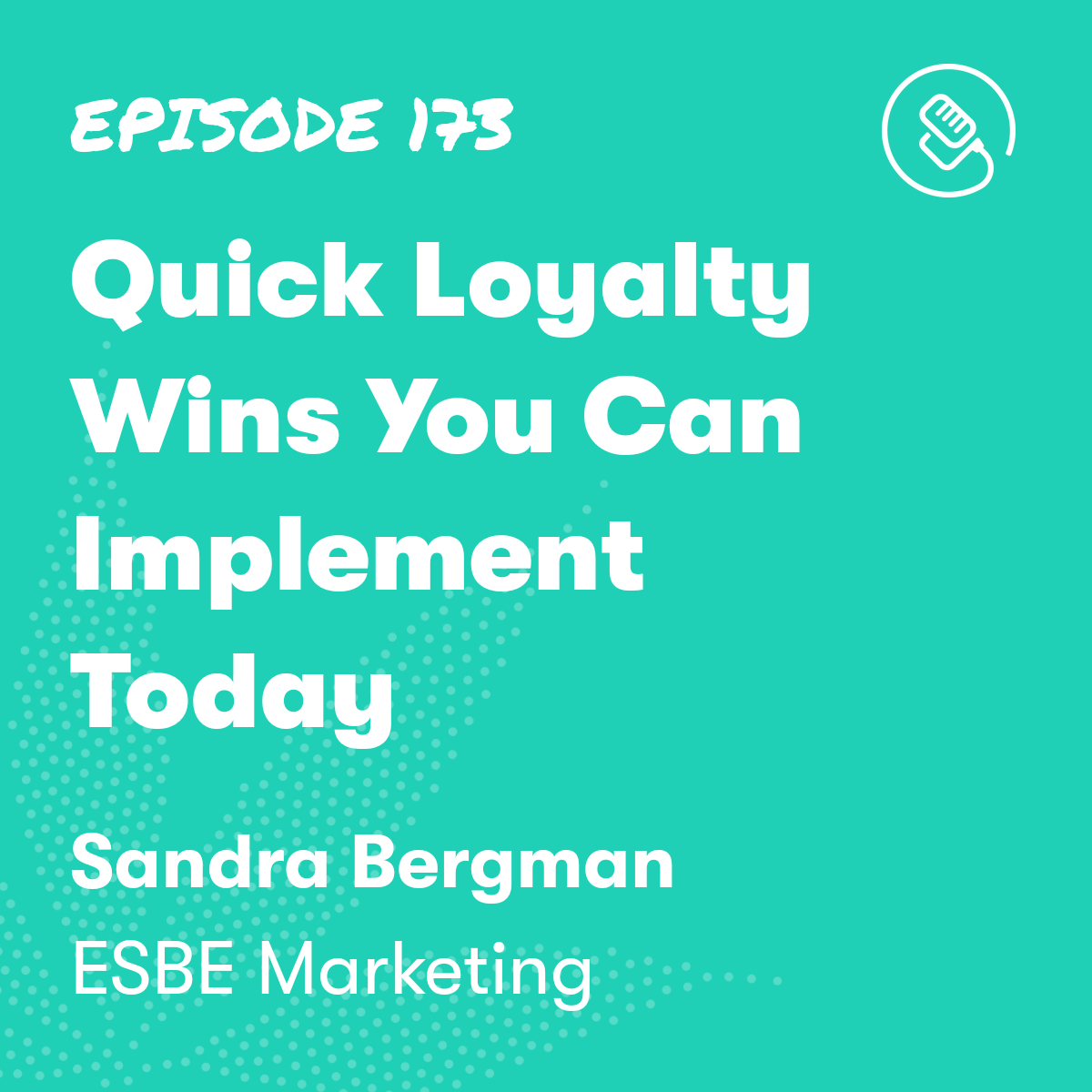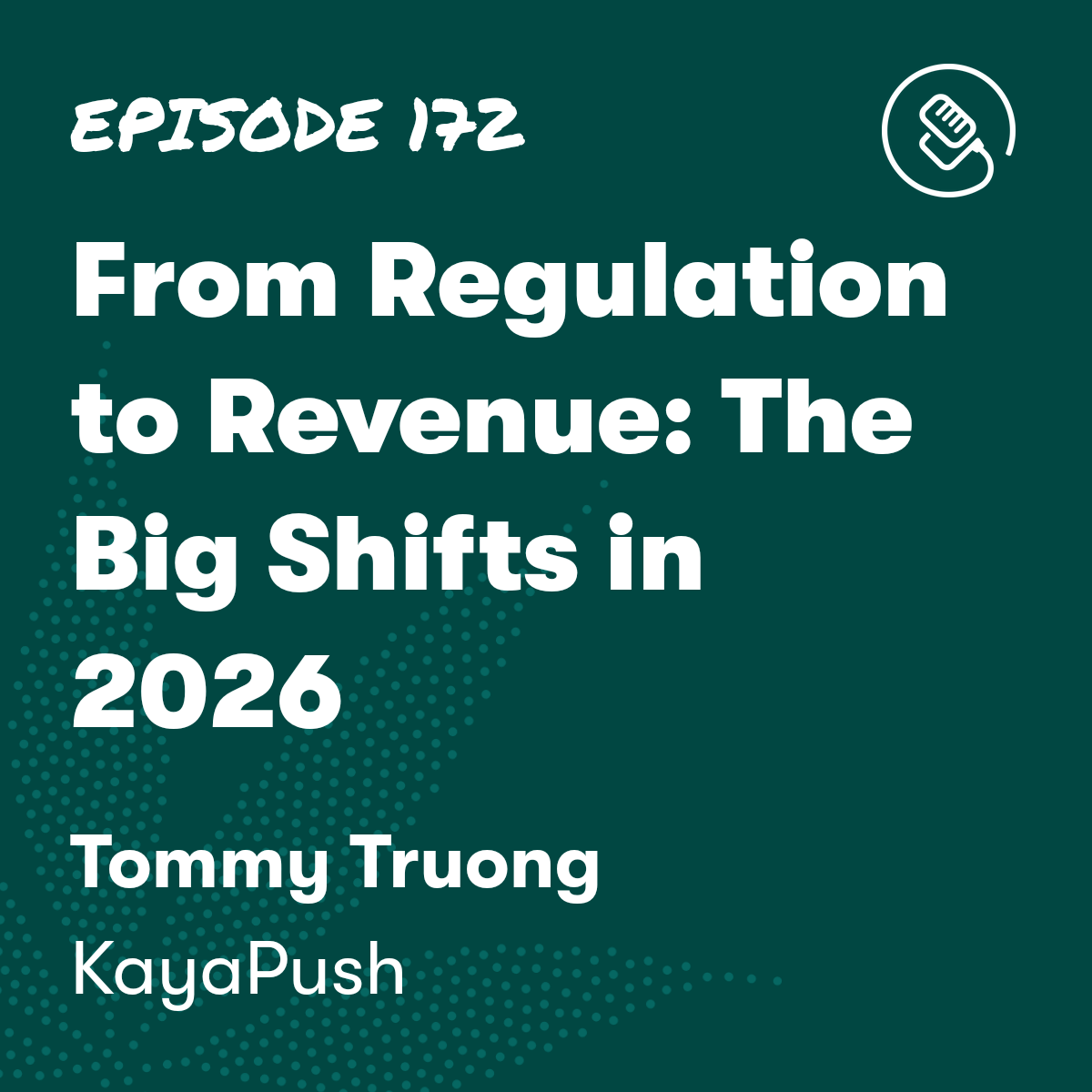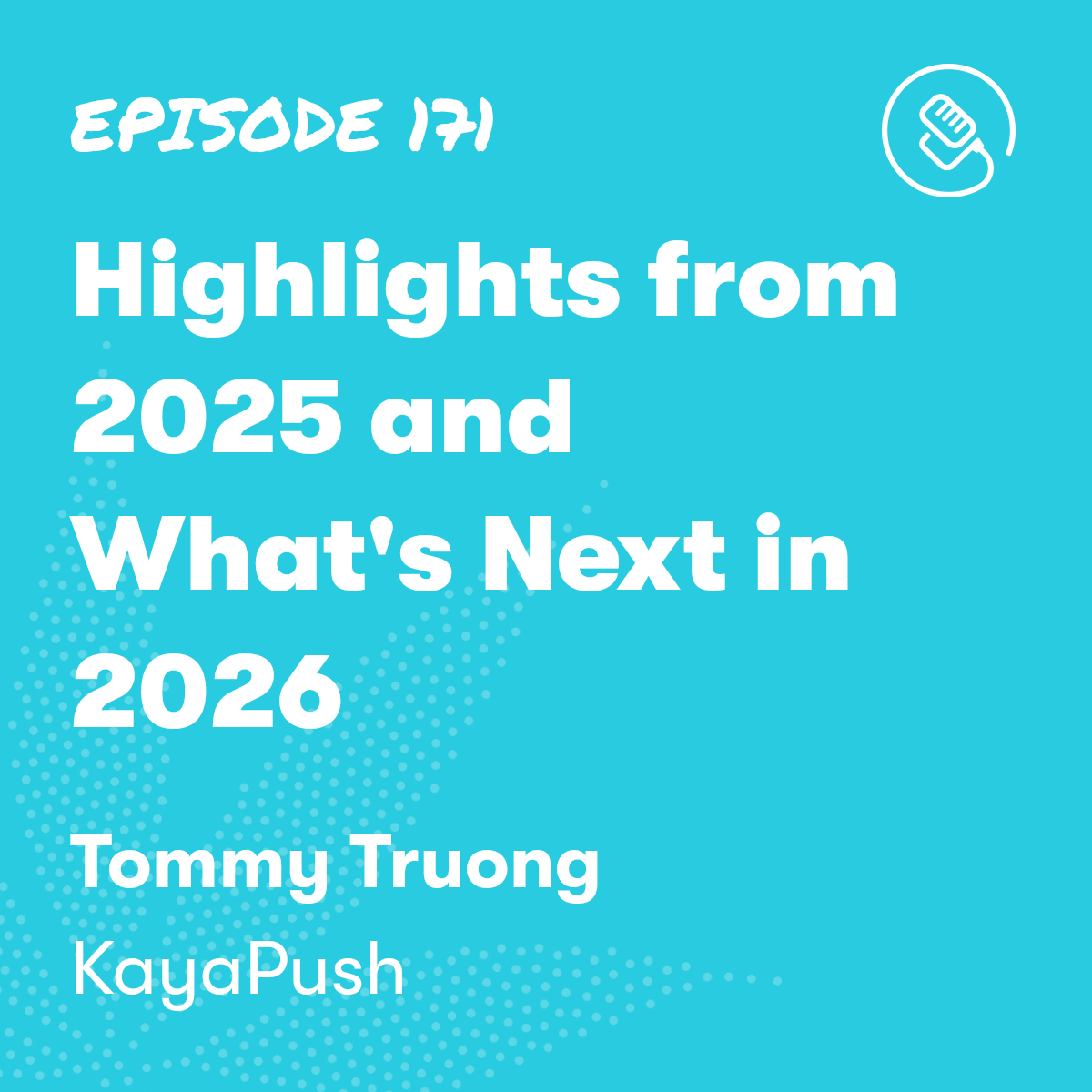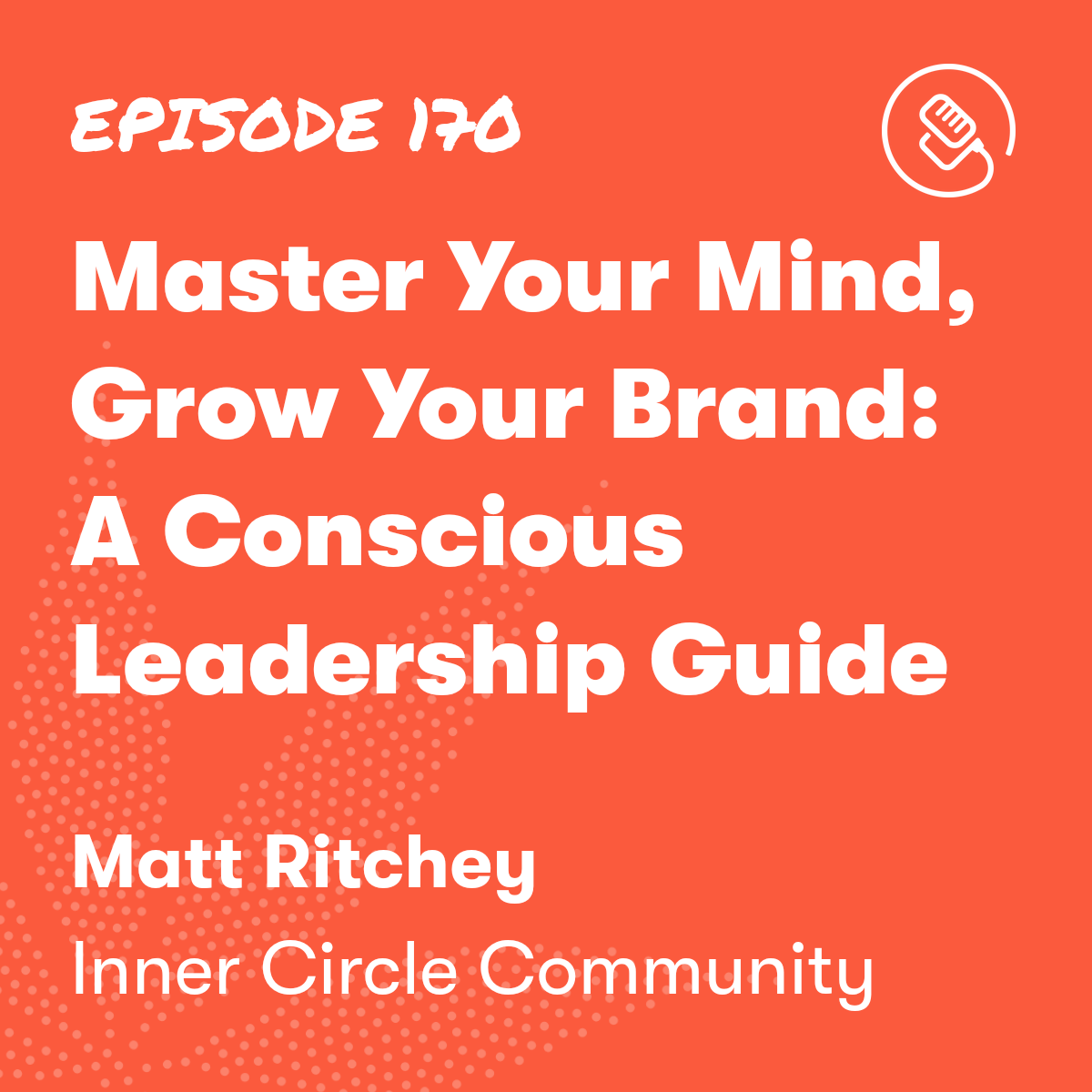

Unpacking 420: Grow your Dispensary with Dazed Cannabis
Episode Description

Episode Transcript
Intro/Outro: Welcome to the KayaCast, the podcast for cannabis businesses looking to launch, grow, and scale their operations. Each week, we bring you interviews with industry experts and successful retailers, plus practical tips and strategies to help you succeed in the fast growing cannabis industry.
Tommy: Well, Rich, thank you so much for joining us today. Thanks for having me. Appreciate it. You've been. You know, you've been running a really successful brand for quite some time now, and you've been through so many 420s. Does inventory training ramp up leading up to 420?
Rich: Uh, I'd say hype training ramps up before 420.
It is truly the, obviously the biggest holiday in the weed business. And, um, literally after New Year's, everyone starts saying, what are we doing for 420? What's happening for 420? What are our plans for 420? So, and it's every week and the closer we get to 420, um, You know, the, the bigger the hype is at the store with the staff, um, with the customers.
So, yeah, I mean, training starts in the sense that as soon as January hits, your next goal is to make it a successful 420. So, um, I don't think it ever. Leaves the forefront of your mind, uh, post January. So we're always working with the other, you're always working with the other, uh, managers and, and co owners to, to just try to have a successful day.
Tommy: How does inventory training change or, or wrap up?
Rich: I wouldn't say it changes. I would say that it, it ramps up, right? So we want to make sure that we have zero hiccups on 420. Cause that's the day you're trying to, um, be your most successful for numerous reasons. Number one, you don't want to have any.
Hiccups on 420. You don't want to have any delays on 420. You're getting the most amount of customers on 420. So you want to make sure that your store is running seamlessly and smoothly as possible, because that's your opportunity to capture those customers that are just coming in for the first time and turn them into repeat customers.
Tommy: What do you guys have in place? I mean, 420 is. Three, four times more busier than a normal day. What do you have in place to ensure that transactions place are accurate and there's no hiccups that day?
Rich: Yeah. So on that day, specifically, we're going to ensure that we have all registers going at all times.
So we'll have 10 registers going at all times. And for every three bud tenders, we're going to have a manager behind. Those, um, three, uh, bud tenders. So, you know, in the event that, you know, what delays a transaction, um, maybe somebody, um, was asking a question that the bud tender doesn't know the answer to, or maybe the bud tender had to walk away for a second.
So we want to ensure that those transactions are, are seamless. So that's why we'll have a manager standing behind every three. to make sure that they can jump in and say, Hey, how can I help you? Or, Hey, what was the question? You know, um, just subtly popping in and make sure that it goes as smooth as possible.
Tommy: Do you guys, can you walk us through just a little bit about how the steps that can, can you talk a little bit about the controls you have in place for each transaction?
Rich: Sure. So for each transaction, we, we work with what's called the two step. And, um, the biggest thing is you, you want to try to, um, give you a little bit of intellectual property here, Tommy.
Uh, no, we don't have time. I'm joking, I'm joking with you. I'm joking with you, you know, for, for each step. I mean, it's not, it's not rocket science here. It's just, it's trial and error, to be honest with you. So, you know, when you have experience in this game that the experience is just like, Hey, we messed up so badly, how do we fix this?
And that's kind of, that's how we we've gotten to the point where, you know, You know, listen, in every transaction, whether you're checking out at Home Depot or you are ordering food at a restaurant, we've all gotten those invoices or, or those, um, uh, receipts where it's like, Oh, they forgot to charge me for, you know, this, or they forgot to ring me up for that.
So human error is part of, is part of the game. The difference between a human error when you're doing something, At Target versus when you're doing something in the cannabis business is that we have to report our human errors to the, you know, in New York, the OCM and Massachusetts, the CCC or whatever, uh, governing body.
One of the things we put in place is what we call the two step, which is, it's very simple. It's, it's when the customer comes up to the counter, they give the bud tender the order. Um, when they give the bud tender the order. The blood tender then recites everything that the customer, uh, ordered, because that might say, Oh, um, you know, you got a, a, a thing of gummies, a pre roll, a half gram pre roll, you got this, that, and the other thing, but Oh, I wanted a full gram pre roll.
So that's the first step in catching what the customer is ordering. And that maybe it's a misinterpretation or maybe the customer made a mistake. Whatever the reasons are. That's the first place you catch it. Then once they agree to the order, then you go pick the order up, you know, at fulfillment, however the system is set up.
Um, and then you bring it back to the counter, you clear the cart, and then one at a time, you pick the item back up and you say, You got one full grand pre roll now, you got one bag of gummies and that gives the customer another opportunity to take a look at that and say, Oh, I didn't want the wild berry gummies.
I wanted the wild berry gummies, but in the, the ones that had CBN or something, you know, so it gives the bud tender another opportunity to avoid any mistakes. And also by clearing the cart. They're picking the item up, scanning it, picking it up, scanning it. So it avoids any kind of discrepancies as well.
And then obviously when the customer agrees to the price, you cash them out. So that is, if you follow that, it's borderline impossible. You know, there's always a half a percent chance you could, the, the system messes up or something like that. The only error that you'd end up having at that point is potentially you'd catch like a, a misscan.
Like if for some reason, um, You know, inventory controls are, are when you go to scan an eighth and it comes up, you know, a half ounce or something like that, because for whatever reason it was inputted wrong, but for the most part, that's as seamless as you're going to get in this game.
Tommy: So, wow, that's, that's beautiful.
And because you guys do this throughout the year at 420, that muscle has been activated throughout the year, pretty much. Yeah, yeah. It's huge for
Rich: us.
Tommy: Do you have any tips regarding staff scheduling on this day?
Rich: I mean, everyone's looking forward to it. I don't think there's tips, right? You need tips when you're scheduling on, you know, Christmas Eve, right? Cause then it's like, all right, we all got to kind of get together and say, okay, who wants to work Christmas Eve? Let's start there. Um, but no, I think the tips come on 420 is everyone kind of wants to work on 420.
That's like, You know, that's the holiday for everybody. Um, so I wouldn't say that there's tips. I think every, I think it's relatively easy to schedule people on 420. You
Tommy: mentioned something about, and this is, I'm going to cut this off about, um, aligning your breaks with sales.
Rich: Oh, yeah, yeah, definitely. Yeah, that's huge.
So, so we have data, um, that allows us to, um, check the, uh, busiest times throughout the day. And every store is different. Every day of the week is different. Um, Every season is different, right? So, you know, in the Northeast in particular, you know, it's a big football community, right? So everyone's kind of like, you know, you could run it through football season and then after the Super Bowl is like almost like another season.
So the seasons don't necessarily align with the weather all the time, but they align with like what events are going on, you know, if it's the holiday season or if it's like, You know, the summer where people rather go to the beach than hang out in the city, depending on, so there's lots of different things.
So I'd say about every two, two and a half months, we kind of go back to the data and we pull, you know, maybe a four to six week, um, chart of when our busiest times are, and you want to ensure. That you don't align your breaks with those busiest times. So in New York City, for instance, our busiest times are from, uh, three to seven, excuse me, four to 7 p.
m. is literally our peak hours. So what we try to do is limit our breaks throughout four to 7 p. m. We try to limit our, um, shift changes from four to seven. Shift changes take a longer time sometimes than breaks. So we want to really dial in those shift changes and say, listen, a shift change should take no longer than 10 minutes.
And we don't want to have breaks between the hours of four to seven. So, you know, um, and same thing, if you look at like our Massachusetts store in Holyoke, the later we stay open at Holyoke, the busier we get. So we try to avoid breaks post 8 p. m. In Holyoke, you know, so all of our breaks need to be, uh, you know, that we're only open until 11 PM, but all of our breaks need to stay open, um, need to happen before 8 PM, you know?
So at 8 PM, there's no more breaks. Um, so every store is different. Every day of the week is different and every season is different.
Tommy: That's really insightful. That's really insightful. So throughout the year, you're just thinking, you're thinking about what season am I in and how does this impact my scheduling and the breaks?
Rich: Yeah. What shopping season are you in? And, and, you know, for us as, as, you know, owners and managers, we, the worst thing for us, you know, the only thing we have is customer service, right? We have to be, everyone sells weed, right? There's the store in every corner sometimes. So. For us, the only thing we have is customer service.
That's the only way we're going to get that repeat customer, get that customer to come back. You know, it's like the restaurant business where there's so many restaurants, everybody has a choice. How does your restaurant, um, how is it different than, than the other restaurants? And a lot of times it's like, Oh, friendly a service.
I know the bartender. I know, you know, I know the manager. I know the owner, whatever it might be. But it always boils down to you have to make that person feel good when they walk into that store. So when we walk into the store and there's three bud tenders on and there's 10 people in line. And as fun as our store is with the music playing and the TV's on and like, we got like disco balls and like, it's just like good as other stores you can get.
You still see, at least I do, the frustration in somebody's face when they're just like waiting there like this, you know, in New York City they might be waiting to catch a, uh, a train or something like that and they're kind of making buttons in line or, you know, um, Every store is different, but I don't like to see that at all.
So you just want to be, you know, you walk in, you're like, okay, what's going on here? Let's check the data. Oh, this is a peak time. Let's cut breaks out during this time. You know? Um, and a lot of times that's what triggers us to say, let's revisit the break schedule, you know, or let's revisit the shopping season.
And then sure enough, the data is always. It all goes back to the data, right? This is a money ball, you know, in the end.
Tommy: I know. I love that. It rings true to when, um, we see really well run stores. It's a marathon and it's continuous. There's no end game. Yeah. You're always playing. How does the company prepare itself for this big event?
How do you activate the muscles? Cause everybody just looks at 420 as the busiest day of the year.
Rich: Yeah, it is. I mean. Again, we have a, um, our company's based on being fun, you know, and, uh, we put a lot of emphasis into marketing and, and social media obviously, uh, always helps. Um, but for the most part, you know, we're, we're embedded in the communities too.
Right. So. A lot of people know that we're kind of willing to do whatever, you know, within the rules. So we get a lot of outside party promoters, um, a lot of outside social media influences to come to us and say, Hey, you know, we'd love to do a 420, uh, party with you. I'd love to have a block party with you or, you know, love to have an after hours thing with you at our, our bar, club or restaurant, you know, so we get a lot of that.
And then you just kind of collect that information and you come up with like. Like what the best is for the business, you know, cause they don't always know you're going to stay compliant or they don't always know, um, you might have something else planned. So you take all that information and you just try to have the best day possible, you know, with the most fun.
In the end, it's in the end, this is a fun industry, right? Weed is supposed to be fun. So that's like what we emphasize.
Tommy: Do you treat 420 the same as you would treat any other holiday or events that you're hosting?
Rich: We do, you know, I'll take a sip of my Patriots cup. You know, Bill Belichick says, you know, every game is the same, whether it's the Superbowl or if it's the first game of the year.
And I, and I think that it's the same, right? Sports and whatever, everything kind of relates back to, to competition. And it's just one day at a time. Every day is another day. You know, the difference is you just need to staff it a little bit better. And people might be a little bit more excited like they would be for the Super Bowl, but in the end, everything is the same, you know, so I don't see, I, you're treated differently only because you have to, I guess, but in the end, it's just another day.
Tommy: Got it. And, you know, I know that you. Dayz, bar none for me, because I follow you guys, you guys are world class at hosting events. Just world class. You do it so often. How does hosting events throughout the year prepare you for the Super Bowl?
Rich: Yeah, that's, that's a good question. So, I mean, Again, we do them all the time, right?
Now we have three stores. So, um, you know, whether it's a grand opening or if we have a celebrity coming in for a meet and greet, or if we have a photo shoot, and the other things that we do too, is that we treat our stores, um, Um, like venues in a lot of, in a lot of ways. Like we have people coming in, you know, asking to do a podcast.
Like you can do, you can do your podcast on our pink couch in New York City, if you'd like, you know, uh, just to kind of like mix things up and then like the, the customers come in and they're like, what's going on here? I see like a guy with headphones on or something, you know? So it's kind of like cool for everybody.
So. You know, we come from a, uh, again, we're a fun party brand, so we try to do things that are fun. And then also, it's good morale boosters for the SAP too, right? It's, listen, retail, the retail game is like dog years. Like, you go into that setting five days a week, 40 hours a week, or whatever it might be, and it's there.
It's a lot, right? So we look at our events as breaks for the staff just as much as they are good for the store. You know, they're just as good for the staff, to be honest with you. You know, the staff loves it when you, when you can put up a poster and say, you know, you have a celebrity bud tender coming, or you put up a poster that says, we have a podcast happening in two weeks.
You know, they talk about that stuff. It gives them something to talk about with the customers, gives them something to talk about in the break room and get a little excited and proud of like where they work. You know, you got to make it a good environment. And again, if not, you're just like everybody else.
So that's how we set ourselves aside.
Tommy: You know, what does, what does customer communication look like leading up to 420?
Rich: Yeah. So customer communication again, is the biggest emphasis that we have in our store. You know, we, we have a, um, I don't know, an unwritten rule at the stores, you know, our motto that we treat our customers like family.
Employees, what we would think that'd be really good. And in return, we expect that our employees treat our customers really well. Right? So it's the golden rule, right? Trio is the way you want to be treated. So for us, our emphasis again is on customer service. That's all we have. And it just takes, there's enough, uh, negative Google reviews that we can't control.
Like customer comes in and like, I don't know. Doesn't like the flavor of a cannabis product or buys a vape cartridge and it's leaking, you know? And like, that's beyond our control. That's like going to the convenience store, buying a Coca Cola and it's flat, and you go on Google and say, this convenience store stinks because I got a flat soda.
Well. Again, that's not necessarily our problem. I can't control that if the company is selling us a vapor cart that had a malfunction, right? So those I can't control, but what I can control is when a bud tender might be, um, rude to a customer or, you know, whatever that might be. I, we, we just unfortunately live in a Google review world and we try to limit.
All of that stuff. Um, and also just being nice to the customers. I mean, again, the customers are coming in to buy weed. They come in, the music's playing and they see like a really fun environment and, you know, they're expecting to have a good experience in the store. So, um, for us, it's all about customer service, you know, starting from when you walk into the door.
Do you guys
Tommy: prepare customers for 420? Like the event, how busy it's going to be?
Rich: Um, we, you know, listen, the managers, you And the butt tenders, to be honest with you, are fantastic. So everyone has a sense of ownership when it comes to our store, right? That's. That's kind of like what we instill in them and, you know, by treating them well, I think, and, and doing certain things, um, that other stores don't do, I think it creates a sense of ownership.
And when you create that sense of ownership, you know, I see the bud tenders picking up trash before they walk into our store. That to me is a sense of ownership. That's something an owner would do, right? You see like a, a straw wrapper. If you pick that up, to me, that's like, wow, okay. That's pretty cool. So it's the same thing with the customers, the way they speak to the customers, their experience.
You know, we do a lot of transactions a day. So these bud tenders are like seasoned. Um, but they'll let everybody know from the beginning. And when you walk into our, uh, meet and greet, you know, to check your ID, that they'll say, listen, it's going to be busy today. It's 420. Please be patient. Feel free to walk around the store, check the merch, check, you know, do whatever you got to do.
Um, and the way we. Check people into the system. The way you get your ID scanned is technically your order, almost like a deli style in a way. So the bud tenders know who is next in line. So at our store, a lot of times, um, regardless of when you walk into the store, you're still in order, you know? So we're able to call the customer by their name.
And, uh, for the next stop. So we, the big thing there is to like, let them walk around the store and enjoy the experience and don't worry about waiting in line.
Tommy: Oh, that's, that's really insightful. And that, I'm just thinking to myself as a customer, that would be the ultimate experience because sometimes you feel rushed.
Like I can't walk around. I can't really enjoy the bar. I mean, I got to wait in line. Cause I don't want to, you know, yeah.
Rich: It's the same way, right? You, you don't, you see that line building up. You're like, Oh, I got to jump and get back in line before, you know, it's too late. So, um, we, we do, we call the people by their names and that kind of lets them be able to relax a little bit.
Tommy: Well, that's awesome. Does, um, what do you guys do in terms of loyalty? Does communication on customer loyalty change leading, 420? And, and, um, is it different in any way?
Rich: No, no, loyalty in terms of what? Like, um, like a loyalty program or are you speaking of? Communicating to customers
Tommy: on, uh, on your loyalty platform leading up to 420 on either promotions or what to expect or.
Yeah.
Rich: So in the cannabis industry, it's really tricky on what you can do and what you can't do when it comes to loyalty and what they can buy and what they can't buy and how you can ask the questions and things like that. So every state is different. Um, I wouldn't say that we do anything differently with loyalty.
Um, You know, in the sense, uh, coming up to 420. It's probably the opposite where depending on how busy we would be, we'd probably like scale it back a little bit, you know, um, like we do that during events and stuff, like just let the customer in because everyone's busy and then, you know, they want to get in the store.
So it's probably a little bit of the opposite on a day like that.
Tommy: What's, when I walk into a day on 420, what is different on that day versus any other day?
Rich: Yeah, it's going to be. We like, we like a little bit of chaos in our stores. Right. So, you know, we just had a grand opening and you know, the micromanager and me always like, everything's going to be just right.
And you know, my partner, Chris is like, it's a party. It's supposed to be chaos. It's supposed to be chaotic. Like just let it go. People are supposed to be bumping into each other, especially in New York City. New York City. People want to be where other people are. If you have three people in the store, no one's excited.
If you have 50 people in the store and it's like a little chaotic, That's what people want in New York. That's what people want everywhere, to be honest with you. Especially in New York, though. New York, if you create, you can literally pay six people to stand outside your store, and that will Draw other people into your store.
You know, it's people want to wait. People want to be where they can't get in. You know, that's how it is in a lot of places, but especially in New York city. So for us, we don't mind to have a little bit of chaos. We like the music to be a little bit louder. Um, you know, it's strategically. The volume is strategically placed throughout the store, but we'd like it to be a little bit louder when you first come in, because that's the first time you feel like, wow, this place is different than the other places.
It's not a museum. I can touch things. I can, you know, so for us, it's just what's different. It's a party environment, you know, as much as it can be.
Tommy: How, uh,
sorry. What happens post 420? How are retros done?
Rich: Yeah. So for us, for every day is a retro for us. You know, every day you learn there's, there's never a day that you don't learn in this business. Um, and whether it's us learning or our staff learning or our managers learning, every day is learning. So we're obviously going to assess all, all of our 420 days at all of our stores and just kind of understand what went right, what went wrong and how we can improve on everything.
Um, and it can be little things, you know, like we're going to have, A, um, a pre order window that day. We're going to talk about how did that go? You know, was it strategically placed in the, was it at the right register? Should we have moved it to the other register? Did having that pre order register, you know, we have L shaped registers, right?
L shaped counters, excuse me. So having that register and that, um, being register one. Was that a good place for it or did it create kind of like a bottleneck when you walk into the store? Should we have placed it at register 10 or maybe register six? So we're going to have like different conversations like that.
Um, it's really about the flow of the line and to make sure that the flow of the people, excuse me, and to make sure that, um, everything went seamlessly. You know, for us. So I think that that's what we're going to analyze, I think, the most out of 420.
Tommy: You know, you mentioned something that is so insightful to me, and I see this consistently across businesses that are well run.
Is, one, you're really involved in operations. And two, there's this sense of continuous improvement. Yeah. Yeah. Yeah. For us, for us,
Rich: yeah, you always got to be learning. And, um, for us, the, the ownership presence I think is extremely needed. And the biggest thing for us is that we don't, we treat our employees, especially our managers, like partners.
Right. Um, like our general managers. From the jump, have a responsibility that, um, we just want them to do their job. To, we create standard operating procedures and we want them to, um, enforce those standing operating procedures. You know, we layer retail managers underneath them so that they have a degree of separation between them and the employees.
Our general managers make their own hours. Like we say, listen, we're Just get the job done, you know, um, and things like that. So when we speak to them, we don't speak to them like they're a staff members or employees. We speak to them like they're business partners. We never tell them what to do without explaining to them why we're doing it.
Right. So we, they have full. Disclosure of everything. You know, they, we don't hide any information from them, uh, because we want them to, and whether they like leave our company or not, it doesn't matter to us, um, for us, it's just about creating, um, a better environment. That's the way we run our business.
I'm not saying it's the best way, but it works well for us. Um, and again, it creates that, that sense of ownership, right? Because now they're like, Oh, these guys treat me a little bit differently than the last guys did in my, my previous job. You know, that sticks a little bit. It resonates a little bit better with them.
And again, weed is supposed to be a fun, laid back culture, laid back environment, and work is difficult, um, enough and personal life is difficult enough. So when you come to work, we don't want work to be stressful. We want work to be relaxed, fun, and take the emotion out of it for us. Like you don't have to have emotion when you're at work, right?
It's just. Analytics, that's all it is. And it's like, what do I have to do? And what are the steps that I need to achieve to pass that goal or cross that goal? And that's kind of how we, we, um, you know, govern our employees or whatever the word is, but that's. The interactions we have with our employees.
That's amazing. Yeah. And in return, we, we have them, we don't have them make any decisions or speak to their retail managers, you know, without informing them why they're doing it, you know? Um, so it's just about. It's about kind of creating a sense of ownership across the board. And we think that that's the best way to run the business.
Tommy: That's amazing. You guys, you guys are growing like crazy. What is in store for days in 2024
and 2025?
Rich: Yeah. So in 2024, I mean, what's truly on the table is we have another location pending in Manhattan, another location pending in upstate New York. Uh, we have a location potentially this summer in New Jersey and one potentially in the next 60 days in, um, Massachusetts.
So we should have four more stores in 2024 at a minimum. That's like what's truly on the table. Um, other opportunities could come up. But that's the goal is for more in 2024 and then to expand from there.
Tommy: If somebody listening today wants to join the Dayz brand, how can they reach out to you?
Rich: Talking about license holders and trying to possibly do a Dayz store.
Yeah. So the best way to, to reach out to us is to. You know, getting in touch with us through social media. You know, we're constantly monitoring that account. That's probably the easiest way. Uh, you could always send an email to our management account, which is daysthedays. fun, um, or myself, richarddays. fun.
But we're always looking for new opportunities. Uh, there's a lot of license holders out there that get licenses that have other professions, you know, everywhere from, uh, Maybe they run an auto body shop or maybe they're attorneys or anywhere in between. And what we find is that when they get that license, they're really excited.
And then they're like, I don't really want to run a retail store. I don't want to give myself a job. I'm going to tell you right now, this is a full time, seven day a week job. It's 18 hours a day. But what we can offer you is, um, what we can offer you is an opportunity to, um, open up a day store. Let us go in.
We'll completely. Uh, run the day to day for you. We'll bring the staff, we'll do everything. And you can be as involved as much or as little as you want. Um, and we've had situations where people are like, listen, I don't want anything to do with it. Or we've had other people that say, I want to do with you, do this with you for the first one.
And learn as much as I can. And then potentially on store two, three, and four, I might want to do my own brand and we're completely fine with that. So, um, I think for us, it's like, we're looking for those types of partners because there's a lot of people out there that have licenses that aren't fully vested or fully interested in running a store, you know, um, because a lot of them have either, they're not sure about it or they have other jobs.
You know, and they, a lot of people do really well doing their other things and they don't want a distraction, you know, so.
Tommy: You know, I, running a successful business is tough and it's near, damn near impossible if you're not involved and you're kind of, you're an example of that. Days is really successful because of how much work and effort you guys put into the brand.
And it's an everyday, seven days a week, 18 hours a day. It's not something that you want to just. Dip one toe in.
Rich: Yeah, it's nuts. You wake up at two in the morning by accident and you're on, you're answering emails, you know. It's that intense. And the truth is, is you, you, you get out what you put in and that's just a fact.
You gotta be You got to be in it a hundred percent in this business or else it won't work out. And we see a lot of that in Massachusetts, you know, I think in Massachusetts, which is a more mature market than New York. Um, you know, there's probably been 20, 25 stores that have closed down and I don't know the reasons for those stores closing down, to be honest with you.
But I can tell you that if, if you run it properly, there's really no reason for a store to close down. So, um, yeah. I think you'll eventually see that in New York as the New York stores pop open like anything else. A few of them are going to kind of take a little bit of a hit. So, um, I think the biggest thing with, with a lot of the stores, and again, it's just from experience, right?
It's not the best teacher, it's the only teacher. And, Those first year learning problems, you know, those can cost you in a business that does like volume that could cost you a million and a half bucks, you know? And everyone, how does that happen? Well, maybe you, your first inventory order, you overordered by double.
That can easily happen. Like, let me order 500, 000 worth of stuff instead of 250, 000 worth of stuff. And, you know, six months down the road, that stuff starts expiring, or maybe you're not buying the correct product for your. Area and you know, you went too heavy on gummies when you should have went a little bit heavier on flour or you're not really sure which product to buy or which vendor to buy, you know, so like inventory is one example.
Choosing the right POS system is another example, you know, over. How do you know what to pay somebody for a salary is another example. A lot of times people come in, I don't know what to do here. And you start just, I'll give you whatever money you want, you know, cause you don't have that experience. You need to lean on an outsider to run your business for you.
It's like these little things cost you hundreds of thousands of dollars. You know, and then like overpaying for marketing or not doing the correct marketing, like you can't even quantify the dollars and errors that you're spending on marketing, you know? So when you have these types of experience, we did it all, you know, we already made all those mistakes and we're business people, we've always run businesses my whole life.
Uh, literally since I was 16, I was running my own business. So no matter how much experience you have, anytime you go to a new industry, I promise you, you're going to make mistakes. It's just guaranteed. So, um, we're, we're still learning. Every state is different for us. We came to New York like we were, we had the, we had the whole rule book.
And when you come to New York, like, wow, this is different. This is a new state. So we learned how to navigate around a new state. So now when we go to our third state, you know, whether that's New Jersey or Connecticut, We know the pitfalls that, you know, we could experience going to another state. So every day and every month that you grow, every new store is a new set of experiences, but first store problems are definitely costly.
So we can bring that. And a lot of people don't realize that, you know, they, they almost don't believe you when you're kind of talking about that to them. They're like, Oh, figure it out. Okay. Figure it out. We have three people, by the way, three owners present, all business guys. Like, the best staff around us, you're going to make mistakes, you're going, and they cost money.
And that's the difference between a store succeeding and not, that's the difference between you taking money out of the business and not. And what they don't realize is one bad year probably takes two and a half, three years to correct.
Tommy: You know, so Rich, thank you so much for dropping these on the pod.
And, um, anybody listening, if you want to reach out and you're interested in, in really what Daze is doing or, or joining the Daze brand, or even what Daze is doing, check them out, daze. fun or daze on Instagram.
Rich: Yeah. And I'll tell you one other thing that we're doing as well, is we consolidate all our businesses, the KayaPush, and I'm not just saying that because I'm on your podcast, but you guys have.
The best platform of any, uh, payroll company, scheduling company. And the fact that everything is all encompassing and the fact that we can, um, the employees can sign any onboarding documents. The fact that, um, you know, they can clock in and clock out on your app and it automatically, uh, pulls all that data and brings it over to the payroll.
That I run payroll for our company. And to me, that was like driving me crazy every week is, you know, Like looking at the hours and trying to like, it was, it was a disaster. And I, I used to hate Mondays and Tuesdays and now your company has made me like them again. So I appreciate everything you guys do for the industry and the business.
And, and, uh, you guys need to keep up the good work. Thank you so much for the kind words. All right, sweet. Thanks. Appreciate it, Tommy.
Thanks
Intro/Outro: for listening to the KayaCast podcast. We hope you enjoyed the show. Don't forget to subscribe to our podcast in your favorite podcast app or visit our website to learn more about our guests and to access the full archive of episodes from the show. Join us next time as we continue to explore the world of cannabis and help you grow, launch, and scale your business.

